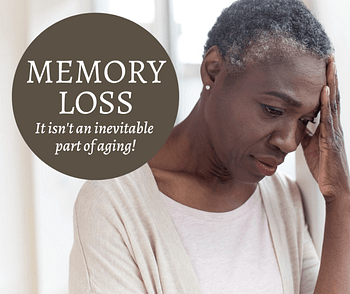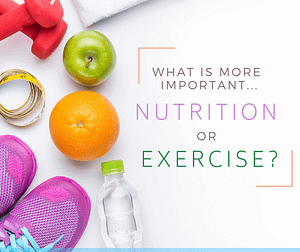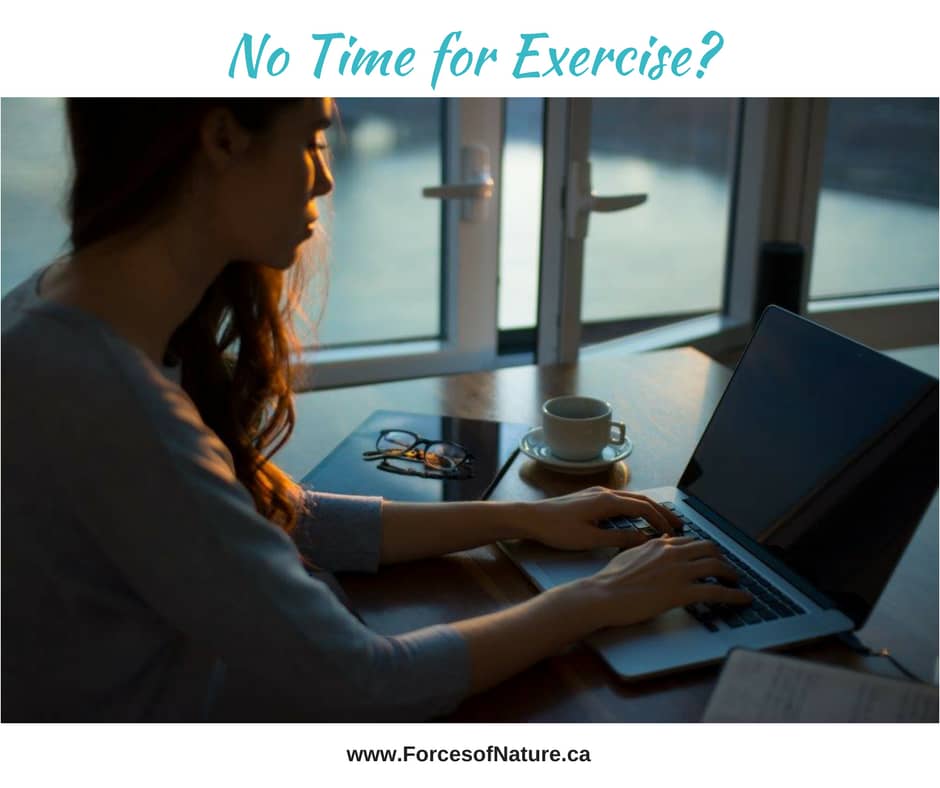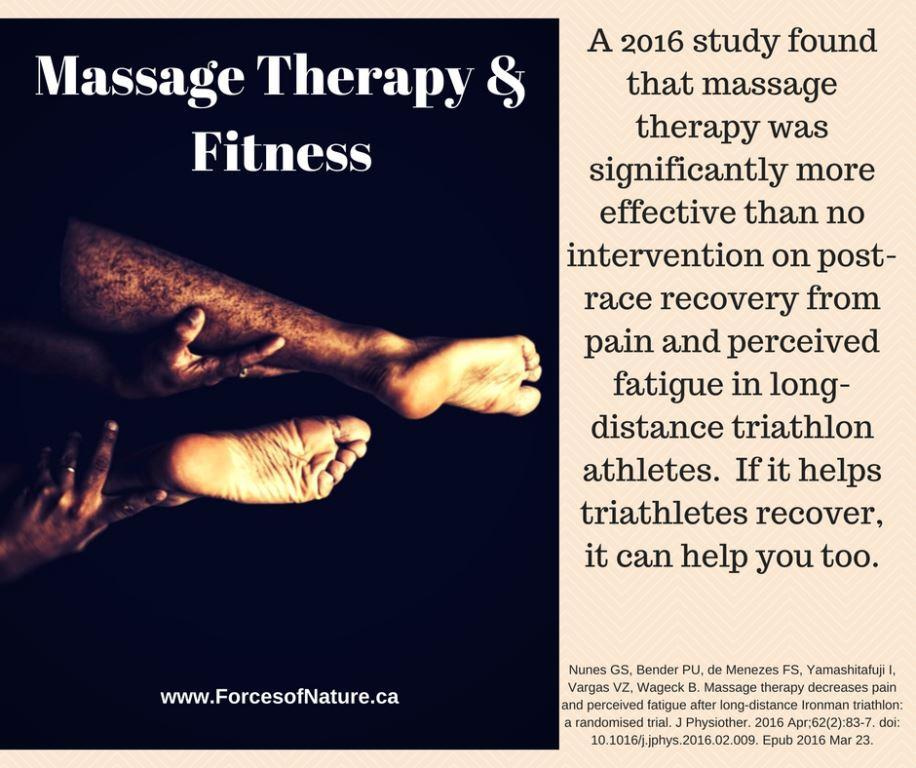
It is totally normal to experience momentary memory lapses. Just like me, you’ve forgotten where you left your car in a parking lot. In fact, that happened to me a few years back in the parking lot at The Magic Kingdom. If you’ve ever been to Walt Disney World, you know that the parking lots there are MASSIVE. We spent hours trying to find our rental car. Of course, not only did we forget where we parked, but the Panic button on the car wasn’t working. Have you stumbled for someone’s name mid-conversation? You may be familiar with that feeling of having an important fact right on the tip of your tongue, but you just can’t retrieve it from your brain. As we get older, those temporary memory blips become more worrisome because we wonder if we’re experiencing normal memory problems or is this the start of bigger issues? As my mother is currently struggling with Alzheimer’s dementia, this weighs on my mind even more than most.
However, it’s important to remember (see what we did there?) that memory loss doesn’t have to be a part of aging. There are many steps that you can take right now to protect your future cognitive health. No matter what your age, improving your memory improves your overall quality of life and health.
What is Memory?
Memory is the brain function that allows you to acquire, retain, and recall sensations, impressions, thoughts you have experienced and information.
The Importance of Having A Good Memory
Having a healthy, well-functioning memory is vital to your well-being, as well as your sense of identity. It means success or failure at learning new things whether it’s for work, school or recreational purposes. Before taking up karate, I had my doubts about my ability to memorize my belt katas, as well as my weapons katas and self-defense drills in order to advance and become a black belt. What I found is that karate has been an excellent exercise in flexing those memory muscles. As you’ll read later on, use it or lose it applies to memory too.
Types of Memory
The most basic way to categorize memory is by grouping it into Short-term Memory and Long-term Memory.
Short-term Memory
This is generally classified as remembering something that happened from right now up to 3 days ago. These sensations, impressions, thoughts and information will either get transferred to long-term memory or discarded if they are not deemed sufficiently important.
Long-term Memory
Long-term memory is your brain’s system for storing more important information that may be needed over the long-term, such as language, personal experience, procedure and facts.
Olfactory Memory
Certain scents trigger emotional responses and memories. That process, which is called your olfactory memory, is an important part of the way that your memory manages your perception of the past and present. In fact, studies have shown that olfactory memories have more power to create a sense of nostalgia than visual memories. Have you ever caught a whiff of someone’s perfume or cologne and that brought back memories of a loved one? How about the smell of a freshly baked apple pie or cookies? Studies also show that breathing through your nose is more effective at consolidating your olfactory memories than mouth-breathing.
There Are Ways To Improve Your Memory
If you want to improve your memory, it’s helpful to consider the biology of memory and what can affect it. Memories are stored in your hippocampus, which is considered to be “plastic” because it is constantly changing and influenced by many factors. For example, the pathways to the hippocampus tend to decrease with age. Hormonal changes also affect the cells’ ability to regenerate. As a result, many things affect the functioning of your memory.
How Memories are Made
The process of making a memory includes the following steps:
- Creating the memory. Our brain constantly sends signals in a particular pattern associated with the event that we’re experiencing. These signals create connections between our neurons. The connections are called synapses.
- Consolidating the memory. If we didn’t do anything further, that memory wouldn’t be retained. Consolidation is the process of committing it to your long-term memory so that we can recall it later. Much of this process happens while we’re sleeping. During sleep, our brains recreate that same particular pattern of brain activity that we associated with the previous event to strengthen the brain connections, or synapses, that we formed previously.
- Recalling the memory. This is what most of us think of when we talk about memory. It is pulling up the memory on demand. Recalling the memory is easier if it’s been strengthened over time. Every time we stimulate that same pattern of brain activity, we make it a little stronger.
Things That Affect Your Memory
Anxiety
Stress leads to physical changes in your brain that affect memory function. It’s easy to notice this process in daily life. When you’re overwhelmed, you feel as if there simply isn’t enough capacity in your brain to take in new information or recall important facts and tasks. It’s like you’re a deer in the headlights, paralyzed and unable to retrieve the memory that car=danger, therefore I better move.
Poor Diet
Your brain needs some “healthy” fats to thrive. Healthy fats include avocado, olive oil, and raw nuts and seeds. Saturated fat and too much processed, sugary food impair your memory, in part because too many sweet treats can lead to brain inflammation.
Hormonal Changes
Shifts in hormone levels, particularly the drop in estrogen that accompanies menopause, lead to molecular changes in the hippocampus that affect memory formation. You’ve likely heard the term “mommy brain” for the lapses in memory that accompany motherhood. There’s a physiological reason for why this happens: There is a massive shift in your hormones on delivering a baby.
Smoking
You can add “poor memory” to the list of reasons to stop smoking. If you’re struggling with this habit (and let’s face it, quitting isn’t easy), talk to a naturopathic doctor.
Germs
Believe it or not, even germ exposure affects your memory. Scientists have found that exposure to some viruses (in particular, the herpes simplex 1 virus that causes cold sores) affects your memory.
Watching too much television
It’s true: Too many Netflix “binges” hurt your memory. One study found that watching 3.5 hours of television per day (which is sometimes just a warm-up for serious bingers) negatively affects how well your memory works.
Prescription drugs
Many commonly prescribed drugs actually harm your memory. Anti-cholinergics (often prescribed for cold symptoms, incontinence, or allergies) and benzodiazepines (used to treat things like anxiety and insomnia) carry a particularly high risk. As always, be sure to weigh the potential negative side effects of any medication carefully.
Thyroid issues
Low levels of thyroid hormone lead to memory loss, mental lethargy and “foggy thinking.”
Histamine
Your brain has a histamine-producing (histaminergic) system that modulates learning and memory through histamine.
Sleep problems
Recent research suggests that sleep is vital to “consolidating” memories. In other words, our brains aren’t just resting when we’re sleeping, but actually forming and protecting the memories we create during waking moments. When we’re not getting enough sleep, we lose that important processing time.
6 Easy Ways To Help Your Memory
So, how can you help your memory? The above list points to potential problems that can be managed. As well, exciting research in neuroscience is finding some simple solutions that help enhance and maintain your cognitive health.
1. Practice mindfulness and minimize distractions
Regular meditation actually alters the physical structure of your brain. Improved blood flow and the creation of more neural connections are some of the paybacks from a regular meditation practice.
However, you also want to make sure your brain isn’t overloaded during the rest of your day. Did you know that we check our phones an average of every 12 minutes? That constant shifting of attention impacts cognitive processes. If you feel uncomfortable when you’re separated from your phone, it may be time for a little soul-searching. If you need help taking a break from your electronics, you may want to read this article for more information.
2. Eat for brain health
A great deal of research supports the importance of a healthy diet in protecting brain health. In general, avoid overly processed foods and focus on:
- Caffeine – research suggests that caffeine may help with the consolidation phase of memory
- Leafy greens
- Berries and other antioxidant-rich foods. A study from the University of Reading and the Peninsula Medical School found that supplementing a normal diet with blueberries for twelve weeks improved performance on spatial working memory tasks. The effects started just three weeks in and continued for the length of the study. The bioflavonoids in berries also appear to help strengthen brain connections.
- Foods high in omega-3 fatty acids, such as salmon, walnuts and chia seeds
- Turmeric (studies have found its anti-inflammatory properties can slow memory loss.)
- Coconut oil (preliminary research points to a protective effect on memory)
3. Move for memory
Exercise helps more than your physical health. It also boosts your cognitive functioning. And it doesn’t take marathon workouts for exercise to have a positive impact on your memory. Even short workouts can boost your recall powers. Studies in both rat and human brains have shown that regular exercise improves memory recall.
In particular, studies show that regular exercise improves spatial memory.
We know that the benefits of exercise are numerous, but for the brain, in particular, regular exercise has been shown to improve cognitive abilities beyond memory. So if you’re looking for a way to stay sharp mentally, taking a walk could be the answer. Even a 20-minute walk has been shown to increase brain activity.
4. Chew gum.
One study showed that participants who completed a memory recall task were more accurate and had higher reaction times if they chewed gum during the study. Chewing gum might increases activity in the hippocampus, an important area of the brain for memory. There is also an increase in oxygen from chewing gum, which can help with focus and attention. Another study found that participants who chewed gum during learning and memory tests had higher heart rate levels than control groups, which also leads to more oxygen flowing to the brain.
5. Sleep.
Better quality and quantity of sleep helps memory because that is when the consolidation process occurs.
6. Train your brain
It’s possible to train your brain to be more efficient. Try some of these simple “hacks” to improve your memory.
- Repeat important information. For example, if you’re introduced to someone, repeat their name back to them. That helps “check-in” new facts.
- Play with mnemonics. You may have learned the names of the Great Lakes through the HOMES acronym. Why not create your own acronyms in order to remember lists of items?
- Draw maps. If you have a lot of info to keep track of, try creating a map on a piece of paper. Put the central piece of information in the middle, then draw all of the relevant connections from that point.
- Create a memory palace. Try picturing a room that you know very well, and associating each object in the room with an important fact you want to remember.
- Work with your environment. Don’t hesitate to place little reminders in strategic places. Some people have luck with post-it notes, but they can be more subtle, such as placing a photograph of a loved one who has an approaching birthday beside your bed.
- Press replay. Immediately after an event, replay the important elements in your mind. That will help imprint the things you want to remember.
Note that there are many programs out there that claim to help cognitive health and improve your memory. However, this is an unregulated industry so it’s important to do your due diligence before spending any money. Talking to a medical professional like a naturopathic doctor first is always a good idea.
If you’d like to discuss ways to support your memory, call the office at 416-481-0222. Together we can pinpoint potential problems and work on lifestyle changes that will boost your brainpower!
By Dr. Pamela Frank, BSc(Hons), ND
Resources:
https://www.nature.com/articles/s41598-019-39354-4
https://www.sciencedaily.com/releases/2008/03/080311182434.htm
https://blogs.scientificamerican.com/observations/estrogens-and-memory-loss-in-women/
https://www.sciencedaily.com/releases/2018/10/181019100702.htm
m.nih.gov/pmc/articles/PMC4330889/
https://www.ncbi.nlm.nih.gov/pmc/articles/PMC4264616/
https://www.sciencedirect.com/science/article/pii/S0166432816301437?via%3Dihub
https://www.ncbi.nlm.nih.gov/pmc/articles/PMC3541490/
https://www.ncbi.nlm.nih.gov/pubmed/28421789
https://www.jneurosci.org/content/35/43/14426
https://www.ncbi.nlm.nih.gov/pubmed/30348674




